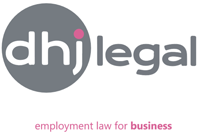
We are still awaiting an outcome from recent government consultation that looked at whether the current laws on sexual harassment provide effective protection. The Equality and Human Rights Commission (EHRC) were supposed to be producing a statutory Code of Practice by the end of the year. This was to help employers understand how best to prevent harassment and how to avoid liability.
Generally speaking, an employer will be liable for the actions of its employees where they harass others at work. Liability can be avoided if an employer takes all reasonable steps to prevent harassment from taking place. What an employer has to do in order to satisfy the ‘all reasonable steps’ requirement is not very clear.
I suggest that the EHRC guidance, produced in 2017, is a great starting point for ensuring that your business is protected against liability. It provides useful guidance on how to prevent harassment.
If you have not reviewed your anti-harassment policy since 2017 then here is a simple policy content checklist, based on the EHRC guidance, that will help with your review process:

Checklist
Does your policy:
- enable appropriate reporting with protection of victims who do report?
- define the reporting channels?
- refer to the range of approaches for dealing with harassment (informal to formal)
- refer to the action that might be taken?
- commit to zero tolerance?
- include a statement that harassment is unlawful?
- define harassment and give examples relevant to the working environment?
- refer to the potential sanctions?
- prohibit victimisation (retaliation)?
- provide information about support?
There is no obligation on employers to offer counselling. However, in Acas’ guide it says that counselling can play an important role and may in some cases lead to informal resolution. It may be particularly useful where the investigation shows no cause for disciplinary action. Counselling may be offered to the person accused as well as to the complainant.
The 2017 also recommends the following actions that will help demonstrate that a business is committed to avoiding harassment in the workplace:
- Anti-harassment training is provided for everyone.
- There is an opportunity for ongoing reflection
- An employer encourages discussion and reinforcement of the policy at, for example, shift meetings.
- Evaluation of sexual harassment in the workplace through regular staff surveys on dignity at work where these are in place.
If you need help with your review process or do not have a policy then give DHJ Legal a call (02920 020402). We can also help with your training requirements.
